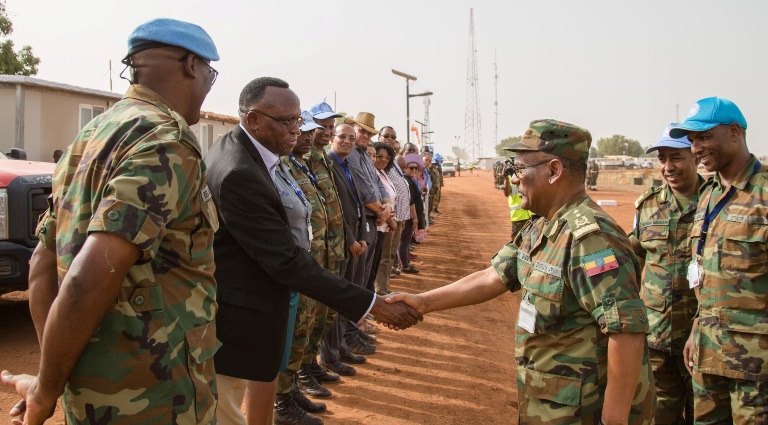Sudan, U.S. discuss implementation of Abyei agreements

December 22, 2017 (KHARTOUM) – Head of the Sudanese committee for the administration of Abyei area Hassan Ali Nimir Thursday has met with the US Deputy Chief of Mission to Khartoum Ervin Massinga.
Ownership of Abyei, a disputed border region contested by Sudan and South Sudan, remained contentious after the world’s youngest nation split from Sudan in 2011.
There is no joint administration between Sudan and South Sudan, as the Ngok Dinka refuse the formation of Abyei Joint Oversight Committee (AJOC). Instead, they call to hold a referendum without the Sudanese pastoralist Misseriya.
Now there are two committees one for the Misseriya appointed by the Sudanese government and another for the Ngok Dinka appointed by Juba government.
The semi-official Sudan Media Center (SMC) said the meeting reviewed previous meetings of the two AJOC parties as well as Sudan’s keenness to implement the security and administrative arrangement agreement in the disputed region.
Nimir pointed out that the American diplomat stressed the need to implement the June 20th agreement for the security and administrative arrangements in Abyei in order to achieve stability in the area.
He added Massinga their efforts to ensure the success of the meeting of the two AJOC parties in late January, revealing the American diplomat would visit Abyei soon.
Nimir urged the United Nations Interim Security Force for Abyei (UNISFA) to deal with Abyei residents with transparency and neutrality and make the disputed region a zone free of weapons as well as allow the U.S. aid access to the area.
On 30 May 2017, after more than two years of suspension, the two AJOC parties held an extraordinary session convened by the African Union. The latter urged them to commit to a functioning Joint Oversight Committee as a forum in which contentious issues could be addressed.
Also, the two parties signed an outcome document, in which they agreed that they would resume bimonthly meetings.
On 27 June 2011, the Security Council, by its resolution 1990, responded to the urgent situation in Abyei by establishing the UNISFA.
UNISFA’s establishment came after Sudan’s government and the Sudan People’s Liberation Movement (SPLM) reached an agreement in Addis Ababa, Ethiopia, to demilitarise Abyei and let Ethiopian troops monitor the area.
The Comprehensive Peace Agreement (CPA) provides that the contested territory remains part of the north until the organisation of a referendum determines its fate.
The difference over who will participate in the referendum prevents the two countries from holding the agreed referendum.
However, the Dinka Ngok organised a unilateral referendum from 27to 29 October 2013 to say they want to join the Republic of South Sudan.
Khartoum, Juba, the African Union and the international community refused to recognise the outcome of the vote.
(ST)
